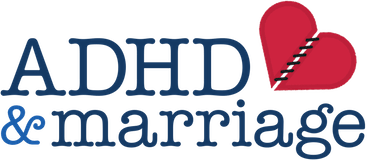There’s a common assumption that high functioning individuals who hold high functioning jobs like attorneys, doctors, and executives can’t have ADHD. Many people wrongly assume that people who are high functioning couldn’t have made it through professional training programs and other rigorous educational systems with ADHD. However, this simply is not true.

I treat a number of very high functioning people in my practice who have ADHD. Many of these people are doctors, attorneys, and executives. The reality is that sometimes people with ADHD can have significant strengths and intelligence. Having ADHD doesn’t mean you are “stupid”. It just means that you tend to struggle with maintaining attention and focus and may also have some difficulties with organization and other areas of thinking, which we call executive control function.
It is quite possible for an individual to make it through intensive academic training with ADHD but not really show a whole lot of difficulty just because they’re so intelligent. However, when people go into private practice or challenging work situations their ability to cope with the ADHD lessens and they begin to struggle in a number of ways.
Further Information
ADHD refers to Attention Deficit Hyperactivity Disorder, whose symptoms in adults may include: impulsivity, inability to concentrate, restlessness, disorganization and mood swings. Cases without the hyperactivity are refered to as ADD, Attention Deficit Disorder.
You can find a quick screening test for adult ADHD here.
An MD who has ADD writes a blog of strategies on how to deal with it, which you can read here here.
ADDitude is a comprehensive website for information and resources on ADHD/ADD.
If you suspect that ADHD is adversely affecting your life, or that of someone close to you, consider scheduling an appointment with a mental health professional. It’s important to be assessed by a specialist who may be able to detect underlying conditions with similar symptoms.






 Here is a helpful resource to learn more about the effect of ADHD on marriage:
Here is a helpful resource to learn more about the effect of ADHD on marriage:
 Contrary to popular opinion, people do not ‘grow out’ of ADHD. Studies have consistently demonstrated that 50-70% of cases of childhood ADHD persist into adulthood. Adults typically do not struggle with hyperactivity, but rather tend to struggle with maintaining control over their attention, being easily distracted, feel like they can never ‘get themselves together,’ seem to be chronically disorganized, and struggle with time management and drastically underestimating the time it will take to complete a task. Adults with ADHD oftentimes start numerous projects and fail to complete many of them.
Contrary to popular opinion, people do not ‘grow out’ of ADHD. Studies have consistently demonstrated that 50-70% of cases of childhood ADHD persist into adulthood. Adults typically do not struggle with hyperactivity, but rather tend to struggle with maintaining control over their attention, being easily distracted, feel like they can never ‘get themselves together,’ seem to be chronically disorganized, and struggle with time management and drastically underestimating the time it will take to complete a task. Adults with ADHD oftentimes start numerous projects and fail to complete many of them.